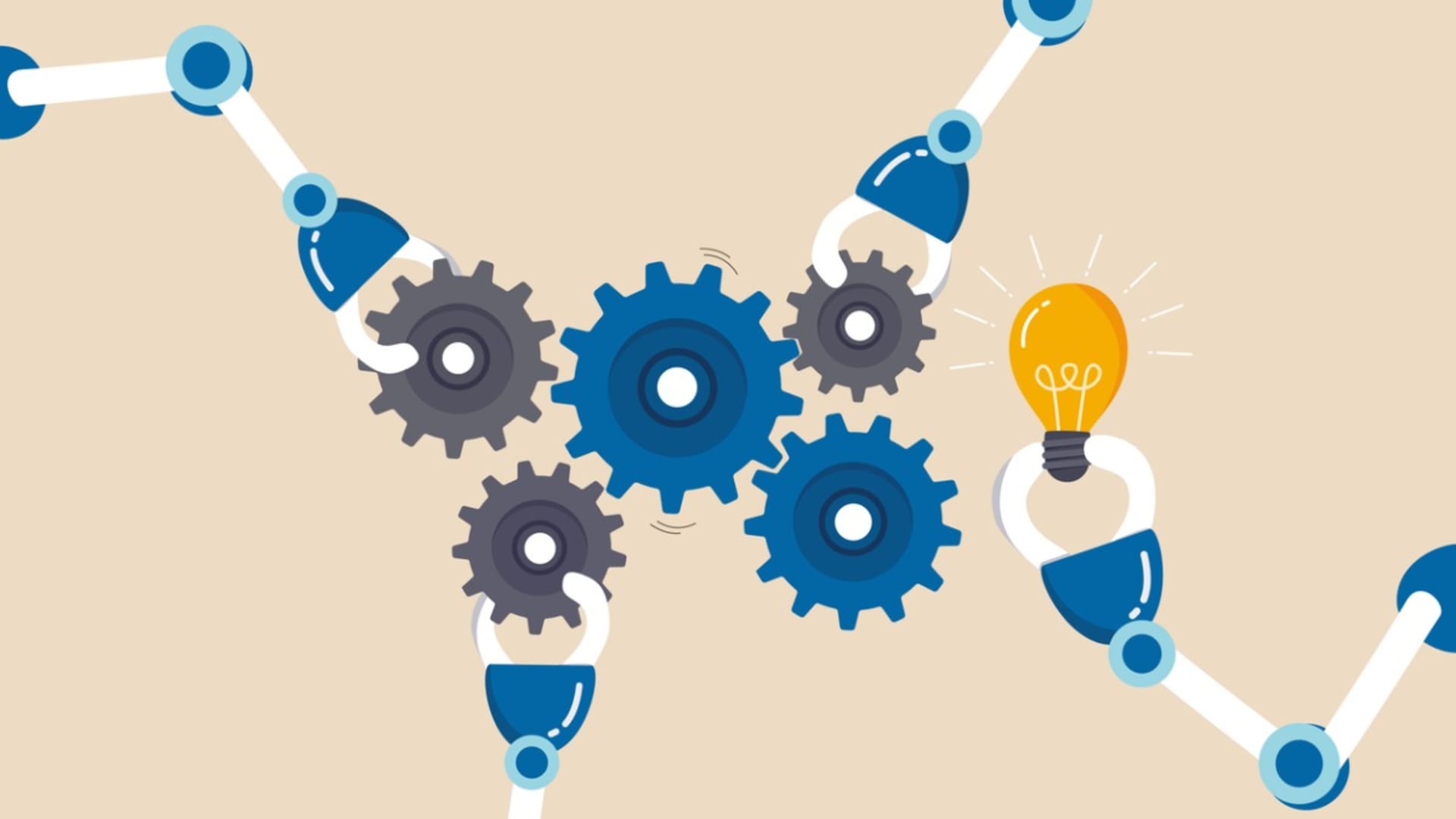With the advent of AI, the world of business is quickly evolving to adapt and capitalize on the opportunities it offers. AI has enabled organizations to automate their operations, improve performance, reduce costs, and manage risks more effectively. One aspect of business operations that can benefit substantially is AI in supply chain management.
As our world becomes increasingly interconnected, entire supply chain networks are becoming increasingly complex. AI has the potential to help organizations address these complexities and optimize their supply chains more effectively.
By exploring how AI is impacting supply chain planning and what it means for global business, we can take advantage of these opportunities.
The Concept of Supply Chain Management
Supply chain management (SCM) is the process of managing and overseeing a company’s supply chain network and all activities involved. It includes the coordination, control, and integration of all processes in the journey a product takes from creation to consumption.
SCM is a vital aspect of overseeing a profitable business because managing resources efficiently while adapting to changing market conditions is essential to keeping an organization running smoothly. By tracking inventory and ensuring that it is delivered on schedule, supply chain organizations can increase their competitiveness, ensuring their products are readily available and priced competitively.
Components of Supply Chain Management
SCM can be summarized according to four basic components: procurement, production, distribution, and logistics.
- Procurement: the process of sourcing and purchasing goods or services.
- Production: the process of transforming raw materials into a finished product.
- Distribution: the process of getting products from factories to customers.
- Logistics: the process of planning, organizing, and controlling the movement of goods from their point of origin to their destination.
A well-functioning SCM system requires efficient management of each of these components in order to successfully deliver goods and services on schedule.
Artificial Intelligence – A Primer
Before we dive into AI in supply chains, let’s learn more about artificial intelligence in general.
What is Artificial Intelligence?
AI is the term used to describe a machine being equipped with the abilities we commonly associate with a cognitive human mind. Covering a wide range of tasks and applications, it can be used to create complex algorithms, instantly analyze data to make predictions, and much more.
Artificial intelligence has seen exponential growth over the previous two decades, with machines now capable of greater accuracy in decisions than humans in many areas, such as image recognition, language comprehension, and autonomous navigation.
The Various Forms of AI
There are many different types of AI that are used for various roles. These include Machine Learning (ML), Natural Language Processing (NLP), and Robotic Process Automation (RPA). Each has its own use cases:
- Machine Learning (ML): utilizes algorithms to teach machines how to learn from data.
- Natural Language Processing (NLP): focuses on understanding and interpreting human language.
- Robotic Process Automation (RPA): designed to automate repetitive, rules-based tasks using algorithms.
AI in Business: A Brief Overview
AI is revolutionizing many sectors of business, from healthcare to transportation. AI-driven companies are able to make decisions and adapt to changes faster, improve customer service and satisfaction, and reduce costs.
An example is in the healthcare industry, where AI is being utilized for medical diagnosis through image recognition technology.
In the transportation industry, AI is being used to develop autonomous vehicles and systems that can optimize routes on the fly. With AI-driven autonomous vehicles operating with a 99.9% confidence rate within 0.5m, we are within reach of a future of self-driving cars.
The Intersection of AI and Supply Chain Management
Supply chain managers are constantly looking for ways to improve business processes. Introducing AI can lead to supply chain optimization and improvement.
The Need for AI in SCM
The development of AI in supply chains is taking place at a rapid rate, and the potential for increased efficiency, reduction of human error, and better forecasting is vital to remaining competitive. Increasing efficiency in supply chain management systems by even the smallest margins can increase profits significantly.
For example, UPS has begun to operate with an AI-powered navigation system that automatically updates drivers’ routes, constantly creating the most efficient route.
With the majority of supply chain disruptions resulting from human error, the cost to businesses can be substantial. AI has the potential to cut spending and maximize ROI by eliminating human error.
With machine learning at your disposal, the ability to correctly forecast global trends increases significantly. By allowing AI to analyze previous market trends and scenarios, you will be better equipped to predict market outcomes, allowing you to make optimal decisions.
Current Uses of AI in SCM
Currently, AI is being used to improve supply chain management systems across the globe, allowing us to copy what works, and learn from what doesn’t. The most common applications of AI are automated warehousing, intelligent transportation, and demand forecasting.
For example, Walmart uses AI-driven automation for its warehouses, which helps them to optimize their inventory levels by automatically reordering stock when necessary. Initially tested in 2021, the success of the trial has prompted Walmart to implement the new system across 65% of stores by 2026. Walmart has seen a 20% reduction in warehousing costs since making the switch, and the superstore plans to further integrate AI into its supply chain operations in the future.
Walmart is by no means the only business utilizing AI. Other companies have also leveraged AI-driven demand forecasting to optimize their supply chains. Amazon, for example, utilizes a forecasting algorithm that takes into account customer data, sales trends, and other factors in order to accurately predict future demands—exactly how they achieved their market share.
Deep Dive: AI Technologies in Supply Chain Operations Management
Many supply chain leaders are utilizing machine learning algorithms to automate various SCOM tasks such as demand forecasting, inventory optimization, and order fulfillment. Additionally, certain AI technologies such as natural language processing (NLP) are being used to quickly process large amounts of data to identify patterns or trends, allowing businesses to maximize ROI.
AI in Procurement
Bridging the gap between traditional methods of supply chain processes and innovative solutions, AI is revolutionizing the procurement landscape.
Role of AI in Procurement
The use of AI in supply chains is transforming the procurement process for organizations. By utilizing powerful data analysis tools like machine learning algorithms, AI-driven technologies offer valuable insights that assist firms in making smarter procurement decisions.
In addition, AI-driven automation has streamlined various procurement processes, including vendor search, purchase order creation, and inventory management. This automation not only enhances efficiency but also decreases human errors.
Use Cases and Benefits
When used in supply chains, AI allows for predictive analytics to optimize demand planning, ensuring organizations are prepared for future needs and can manage inventory effectively. As customer trends are becoming notoriously hard to predict, an AI-powered analytics system can provide ample supply chain data, enabling the systems to have adequate warning before surges in demand.
Another use for AI in procurement is AI-powered chatbots. This application can streamline common inquiries from vendors and customers, enabling employees to focus on more complex tasks. This reduces costs and improves customer satisfaction.
AI increasing customer satisfaction may seem counterintuitive at first, but instantaneous messaging and well-planned funnels can save time for clients and allow them to complete their queries seamlessly.
Machine learning algorithms can also automate supplier selection, helping companies identify the most reliable providers. By removing the potential for human error and improving efficiency businesses can reduce costs significantly.
AI in Production
Harnessing AI not only optimizes production processes but also strengthens supply chain resilience.
Role of AI in Production
AI in supply chains is becoming important in areas beyond procurement. Production is another process that has seen substantial benefits from AI integration. Machine learning and the Internet of Things (IoT), for example, are being leveraged to enable predictive maintenance, quality control, risk assessment, and other aspects of production.
Predictive maintenance is a process in which AI-driven systems help to identify potential problems before they arise. This allows companies to address issues before they cause major disruption or lead to costly repairs.
Essentially, AI predictive technology analyzes data from previous disruptions and identifies patterns. In turn, this both reduces repair costs and also prevents disruptions, providing two avenues of cost reduction.
By using machine learning algorithms, organizations can also improve their quality control processes and ensure that products meet their desired standards. This is done by analyzing large datasets from product tests and identifying patterns in defects, allowing the company to pinpoint weaknesses in its production process.
Similarly, AI-based solutions enable real-time risk assessment and ensure that production continues without unexpected delays or bottlenecks. This helps improve the overall efficiency of the production process, as well as reduce costs associated with downtime and rectifying problems.
Use Cases and Benefits
AI integration in the production process can prove to be a significant cost-saver for any organization. By automating processes using AI and robotic automation, businesses can increase production speed and accuracy, resulting in cost savings through reducing human labor costs as well as improving product quality. The costs of automating this process, although high, do outweigh the labor costs in the long term. And because robotic automation does not require downtime, it can work significantly faster than human labor.
In the production process, AI is also used for the quality inspection of manufactured products, reducing costs and maximizing efficiency. Machine learning algorithms allow computers to analyze large amounts of data and quickly identify patterns in defects, enabling the company to pinpoint any weaknesses in its production process—ultimately improving product quality.
Predictive analytics can be used to schedule maintenance or repairs on machines before any mechanical failure occurs. By predicting potential machine malfunctions and scheduling maintenance accordingly, organizations can save on downtime and reduce unexpected delays or hiccups.
AI in Logistics and Distribution
With the rise of supply chain AI, the impact is especially profound in areas like logistics and distribution.
Role of AI in Logistics and Distribution
Logistics and distribution processes are also being impacted by AI. By leveraging route optimization, automated delivery systems, and real-time tracking capabilities, companies are able to streamline their operations and improve their customer experiences.
AI-enabled route optimization is the process of AI forecasting the most efficient routes for shipments and transportation through data analysis. This reduces transportation costs, as well as maximizes profits by cutting down on the time invesment. This means that goods reach their destination in a timely manner.
Automated delivery systems eliminate the need for human intervention, ensuring quick and smooth deliveries. Additionally, AI-based real-time tracking allows companies to closely monitor their shipments and guarantee on-time delivery.
Use Cases and Benefits
AI in supply chains has been proven to have substantial benefits and improvements. Through a multitude of applications, specifically data analysis and automation, AI is transforming logistics and distribution systems for the better. Partnering with a logistics software development company can further enhance these systems by integrating advanced AI solutions tailored to specific needs.
AI helps companies optimize their routes while reducing costs associated with downtime and rectifying problems. This leads to improved customer satisfaction through quicker delivery times and lower logistics costs. By leveraging the power of AI in their operations, businesses are now able to operate more efficiently and gain a competitive edge in the markets they compete in.
The Future of AI in Supply Chains
The use of AI in supply chain management is rapidly becoming more prevalent as technology advances, and this will only continue. AI’s full possibilities and potential improvements are still unknown. As IoT and blockchain technologies become more widely adopted, AI-enabled predictive analytics will become even more important for managing supply chains.
IoT devices can provide real-time data on inventory levels and shipment status, while blockchain technology can enable a secure transfer of data and assets between supply chain partners.
The potential implications and benefits of leveraging these technologies in SCM are immense. By using AI-powered analytics tools to simplify the analysis of large datasets, companies can increase the accuracy of their decisions while making them faster than ever before.
Predictive analytics also enables insight into future trends and demand patterns, allowing SCM professionals to better anticipate customer needs and optimize supply chains accordingly.
Potential Challenges
One of the main challenges that companies face when it comes to adopting AI in SCM is data privacy. As more data is shared between supply chain partners, there is an increased risk of data being exposed or stolen.
Additionally, companies must ensure compliance with various regulations and industry standards when handling customer information. Although this may add costs and unforeseen losses, the payoff is worth the risk. While data breaches are possible, as AI becomes smarter, more autonomous, and increasingly powerful, it will be possible to use autonomous network security systems that could help prevent these attacks from occurring.
Another challenge associated with using AI in SCM is the initial cost. AI technologies can be expensive to implement and maintain, and small businesses may struggle to allocate funds for these investments. As AI develops further, a greater amount of services are becoming available for free or very low cost.
Conclusion
AI is revolutionizing supply chain management systems across the globe. Because of the immense potential for cost-saving and maximizing ROI, AI-powered procurement, production, and logistics systems have become commonplace. Through their ability to accurately predict trends, maintenance schedules, and optimal routes for shipping, AI will become increasingly ubiquitous in our offices.
Although there are challenges associated with the integration of AI, such as data privacy and its initial cost, these problems can be solved through increased implementation and better security systems. Employing AI development services can ensure that these integrations are more seamless, enhancing the effectiveness of AI applications while addressing these challenges effectively.
If you enjoyed this, be sure to check out our other AI articles.
- AI in Manufacturing: A Game Changer
- 4 Major Ways in Which AI is Changing Entertainment
- AI Isn’t Scary!: Here’s Why It’s Changing Our Lives for the Better
- AI vs Low-code vs No-code: Which One is Right for Your Project?
- 10 Top AI Marketing Tools
FAQ
What is the Impact of AI on supply chain management?
AI has transformed supply chain management, enabling companies to create optimized networks easily, while simultaneously reducing costs.
How is AI currently used in supply chain management?
AI is currently utilized in supply chain management, primarily to reduce costs, increase efficiency, and maximize profits through minimizing human error and disruptions.
What is the future of AI in supply chain management?
In the future, an increasing number of companies will adopt AI technologies in supply chain management to gain greater control over their operations each day.






